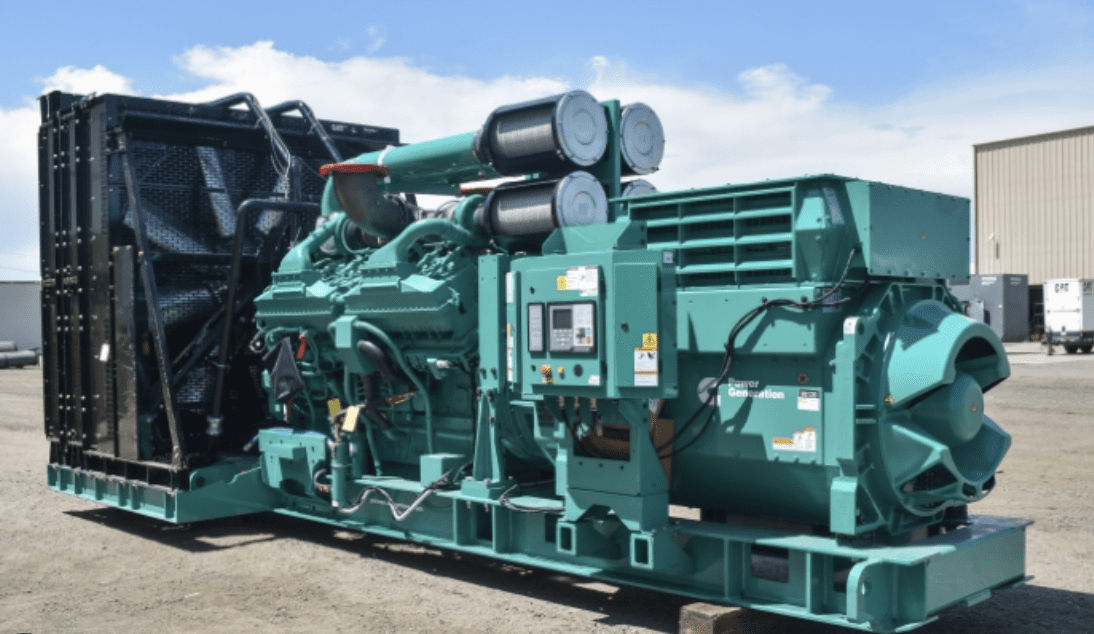In a world driven by technology, uninterrupted power supply is more critical than ever. This is where generators come into play, providing a reliable backup source of electricity during outages. However, not all generators are created equal. They come in various types, each tailored to specific needs and situations. In this article, we’ll explore the different types of generators, their applications, and even delve into the potential for reselling.
A 500kW generator is a powerful electrical device designed to produce 500 kilowatts of electricity. These generators are typically utilized in industrial settings, commercial buildings, or large-scale events where a substantial amount of power is required. They often employ diesel, natural gas, or other fuel sources to drive the turbine or engine that generates electricity. With their robust capacity, 500kW generators are capable of providing reliable backup power during outages or serving as the primary power source in remote locations where grid connectivity is limited. These generators play a crucial role in ensuring uninterrupted operations for critical facilities such as hospitals, data centers, and manufacturing plants, as well as powering events, construction sites, and temporary installations.
Types of Generators
1. Portable Generators
Portable generators are versatile and commonly used for a variety of purposes. They are compact, making them easy to transport and store. These generators run on gasoline or propane and are ideal for powering small appliances, tools, or providing temporary power during camping trips or emergencies.
2. Inverter Generators
Inverter generators are known for their efficiency and clean power output. They use advanced technology to convert AC power to DC and then back to AC. This results in a more stable and consistent flow of electricity, making them suitable for sensitive electronic devices like laptops and smartphones. They are also quieter and more fuel-efficient than traditional generators.
3. Standby Generators
Standby generators are designed for continuous, automatic operation. They are permanently installed on a concrete pad and connected directly to a home’s electrical system. These generators are typically powered by natural gas or propane, ensuring a reliable supply of energy during extended outages. They’re crucial for homes, hospitals, and businesses that can’t afford downtime.
4. Industrial Generators
As the name suggests, industrial generators are heavy-duty powerhouses designed for large-scale operations. They are employed in factories, construction sites, data centers, and other industrial settings. These generators often run on diesel or natural gas and can deliver a substantial amount of power for extended periods.
5. Solar Generators
Solar generators harness the power of the sun to generate electricity. They consist of solar panels, a battery storage system, and an inverter. While they may not be as powerful as traditional generators, they are eco-friendly and perfect for off-grid living, camping, or as a supplementary power source.
Applications
1. Residential Use
Generators have become a staple in households worldwide. They provide peace of mind during storms, power grid failures, or in regions with unreliable electricity supply. Standby generators seamlessly take over when the main power source fails, ensuring that daily life can continue uninterrupted.
2. Commercial and Industrial Use
Businesses rely heavily on a steady power supply for their operations. Industries such as manufacturing, healthcare, IT, and agriculture can’t afford downtime. Industrial generators provide the necessary power to keep these enterprises running smoothly, preventing costly interruptions.
3. Outdoor Activities
Portable generators and solar generators are indispensable for outdoor enthusiasts. They power camping equipment, RVs, and provide electricity in remote locations where conventional power sources are absent.
Reselling Opportunities
Given the essential nature of generators, there’s a growing market for both new and used units. If you’re considering reselling generators, it’s essential to understand the specific needs of your target market. For instance, residential customers may prefer portable or standby generators, while commercial clients may be more interested in industrial models.
Consider offering maintenance and installation services along with your products. This can add significant value to your offerings, attracting more customers.
In conclusion, generators are a vital component of modern life, providing power when it’s needed most. Understanding the different types and their applications allows you to make informed decisions about which generator suits your specific needs. Additionally, recognizing the potential for reselling generators can be a lucrative venture, especially in regions prone to power outages or with a thriving industrial sector.

